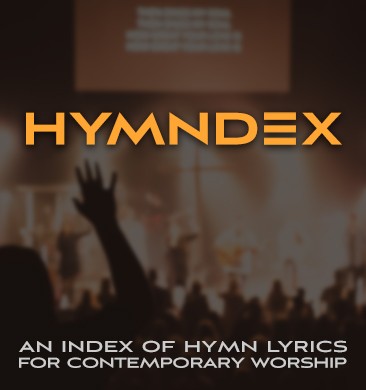The first time I played in the band at NewSpring Church I found that they want you to play from memory. I’ve always been used to playing with charts, but since I had to memorize about a million notes for my senior piano recital many years ago I figured I was a big enough boy to handle it.
Why should you try to play your worship set from memory? Two reasons: musical and spiritual. With your mind free from the concentration required to read a chart you’re able to play more musically and you’re able to worship. Besides, praise and worship music is not brain surgery. You can do this!
There are two methods I use that have made memorization surprisingly pain free. I was happy to find that playing from memory takes very little extra preparation – you just have to >think< a little more when you’re rehearsing.
1. Analyze the music. Instead of mindlessly playing notes during rehearsal, I think about what I’m playing. How many verses are in the song? How many choruses? What’s the key? What’s the chord structure? How long is the intro? If you simply try to memorize a series of notes you’ll never do it. Instead, analyze the song by grouping all of those notes into bite-sized sections: intro, verse, chorus, midtro, bridge and ending.
As I play the song, I think of it as being broken up into these different sections. I’m thinking “okay, I’m on the first verse, now the chorus, now the midtro… etc.”
When you combine the analysis with the feel you’ll be surprised at how easy it is to play from memory. The two methods prop each other up. For instance, here’s how I prepare for rehearsal. We’ll either be given CDs for the upcoming Sunday’s music, I’ll download the songs or listen to them from a worship planning website. I’ll have fun playing through the music using the chart, often playing along with the recording. This is the “feel” – I’m getting a natural, emotional sense of the song. This takes very little time and the pre-preparation makes rehearsals so much more profitable for everyone.
Then, at rehearsal, we’ll work out exactly how we’re going to do the song. Maybe we’ll repeat the chorus again. Maybe we’ll shorten the bridge. This is where we’re analyzing the song – deciding the format of how many verses, choruses and repeats we’ll be doing. At NewSpring they get more elaborate – they’ll practice a song a few times and get their format down, record the song, then move on to the next song. At the end of rehearsal each band member gets a freshly burned CD to take home, or can listen to the songs on a worship planning website.
When I combine the feel of the song (emotional) with the analysis of the song I can play it quite easily from memory. I’ll “hear” the song in my head and naturally play it. If I lose my place for some reason I have the analysis to back it up. Maybe it’s kind of like Paul said in I Corinthians 14:15. I’ll change “pray” to “play:”
“I will play with the spirit, and I will play with the understanding also.”
2. Practice before bed. The “Four Hour Workweek” is one of my favorite books. Author Tim Ferris calls himself a “lifehacker” – he likes to find quick, maximized shortcuts to success in any field. On his TV special he talked about training to be a Japanese horseback archer. He’d practice his moves right before going to bed and a night’s rest ingrained this practice into his mind.
So every Saturday night before bed I run through the following Sunday’s music. I’ve been pleased at how well this has helped my playing from memory on Sunday morning. If you’re struggling with memorization, maybe another practice-before-bed session or two would help even more.
Then on Sunday morning I’ll keep a setlist on the top of the keyboard with a list of songs and keys to keep me straight.
Give memorization a try this week. If it’s too much, try memorizing just one song this week, two next week and three the next. Soon you’ll be familiar with your song repertoire and be chartless in no time.





